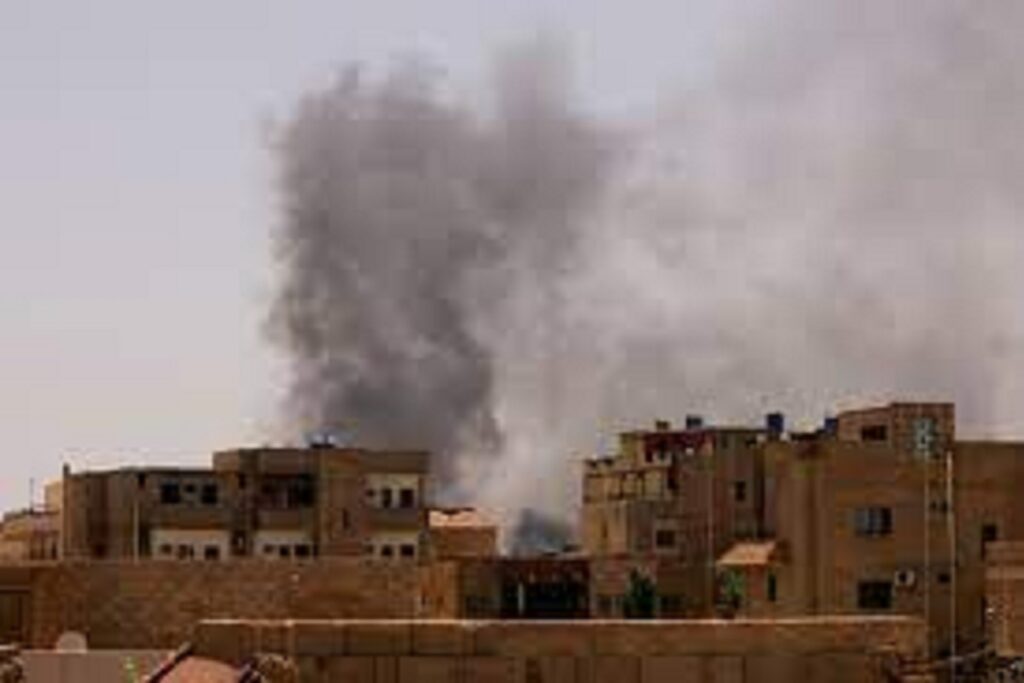- Have any questions?
- +256 750 878872
- info@paidhafm.com
10 CONGOLESE KILLED IN AN ARMY ATTACK ON A UNIVERSITY IN SUDAN

GHETTO KIDS LOSE OUT IN BRITAIN GOT TALENT FINAL
June 5, 2023
THOUSANDS FLEE FLOODED HOMES IN UKRAINE
June 7, 2023

Ten people from the Democratic Republic of Congo have been killed in an army attack on a university campus in Sudan, the Congolese government says.
They died in bombardments on Sunday afternoon at Khartoum’s International University of Africa, it said.
“What hurts us very much is that it was the regular army that dropped the bombs knowing there were foreigners there,” the Congolese foreign minister said.
Rival military forces have been battling in Sudan’s capital for weeks.
Paramilitary fighters of the Rapid Support Forces (RSF) have bases in many residential areas across the city, which tend to be attacked by the military from the air.
It is not clear if those caught up in Sunday’s bombing were university students. It may have been an area within or by the university where various foreign nationals sought refuge.
UN refugee chief Filippo Grandi tweeted of his shock that 10 refugees had died in an attack in Khartoum, without giving further details.
The RSF, which is in a vicious power struggle with the army, said – in what appears to be a reference to the same attack – that the bombing on Sunday had happened in an area where African refugees were staying. It put the death toll of Congolese nationals at 25.
It tweeted a video that purported to be from the scene. It showed smoke rising in the background from the direction where the International University of Africa is located.
People in the video, including a distressed woman who says her husband died in the attack, speak a mixture of Arabic and Lingala, the language spoken mainly in the west of DR Congo.
One man says: “We are Congolese… many people here are Congolese. Where is the international community?”
Foreign Minister Christophe Lutundula said DR Congo had demanded an explanation from the Sudanese government and expected the bodies of those killed to be repatriated free of charge.
This would ensure “our compatriots are buried with dignity in accordance with our traditions”, he told journalists on Monday.
The Congolese government has also asked the Sudanese authorities to open up a humanitarian corridor so that those wounded in the attack and others still stranded in Sudan can be evacuated.
The Sudanese army has not so far responded to a BBC request for comment.
The foreign minister was at pains to say that arrangements had been made since the conflict erupted on 15 April to evacuate Congolese people living in Sudan.
Some buses had taken students from the International University of Africa to the Egyptian city of Aswan where they were then flown to the Congolese capital, Kinshasa.
Such efforts would continue, Mr Lutundula said.
The humanitarian truce between the army and the RSF, which began on 22 May, officially expired on Saturday evening – though it was frequently ignored by both sides.
The fighting, now it its eighth week, has killed hundreds of civilians and forced more than a million people to flee their homes.

